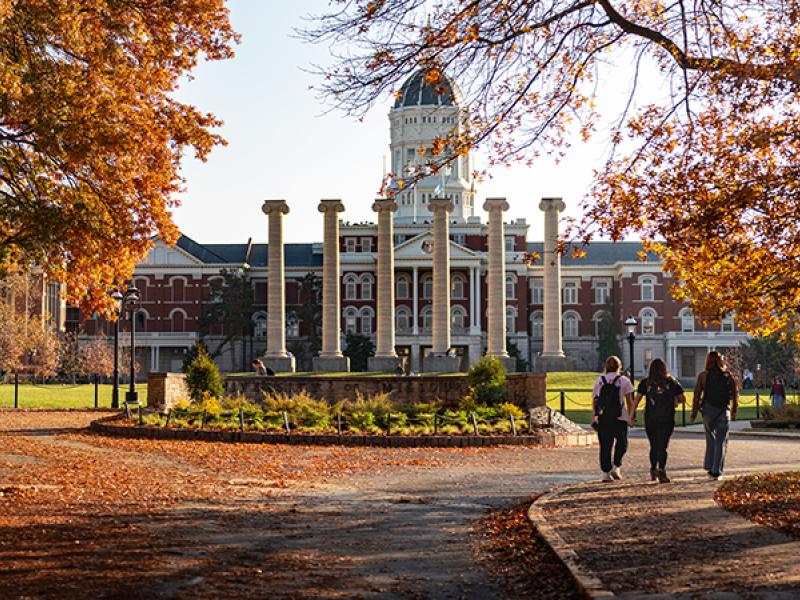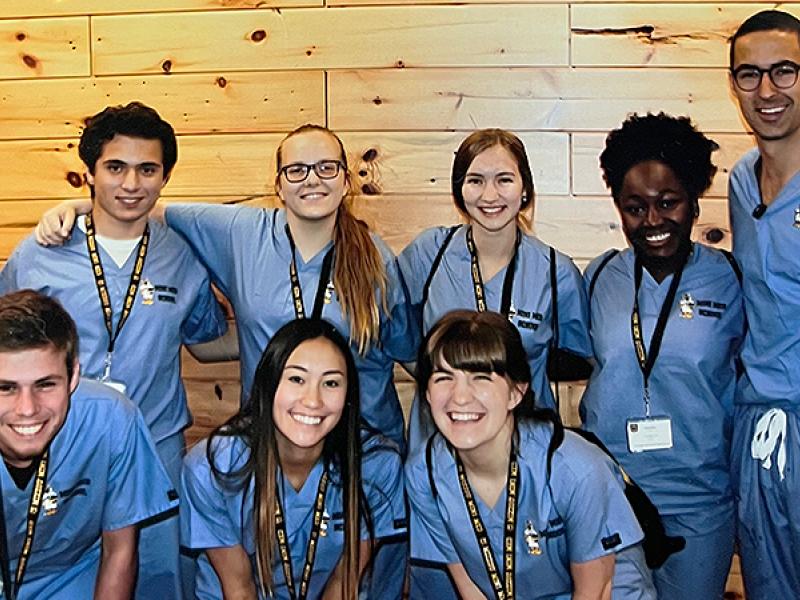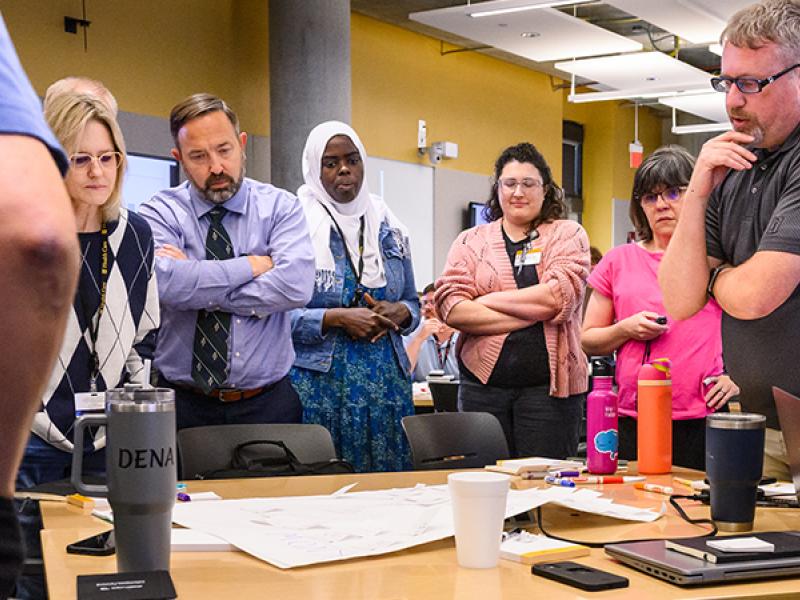Year two consists of four nine-week blocks. As in the first year, each block has two components: six hours of basic science and patient-based learning (BSci/PBL) and three hours of introduction to patient care (IPC). Students continue to participate in Contemplating Medicine, Patients, Self and Society (COMPASS) and now also participate in advanced physical diagnosis. The academic foci of the second four blocks are pathophysiology and clinical medicine.
Block Five
The BSci/PBL component focuses on pathophysiology, including cell injury, hemodynamic disturbances, genetic disorders, autoimmune disease, immune deficiency and hypersensitivity. The IPC component focuses on diagnostic tests, imaging, tests of function, differential diagnosis and iterative hypothesis testing.
Block Six
The BSci/PBL component continues to focus on pathophysiology, looking closely at cardiovascular, respiratory, blood disorders and nutritional diseases. The IPC component focuses on normal psychosocial development, psychopathology, psychotherapy, psychopharmacology, when to refer and psychosocial factors in aging. Students also begin Advanced Physical Diagnosis.
Block Seven
The BSci/PBL component builds on the focus on pathophysiology with a look at gastrointestinal, liver, endocrine, renal and genitourinary disorders. The IPC component during this block is a clinical practicum, where students learn about charts and notes, admission orders, writing prescriptions, adult and pediatric nutrition, venipuncture, infection control, IV access, fluids and electrolytes, arterial blood gases, intubation, lumbar puncture, catheterization, and studies in ophthalmology. Students continue with advanced physical diagnosis.
Block Eight
The BSci/PBL component wraps up the focus on pathophysiology with a look at clinical microbiology, antibiotics, reproductive pathology, musculoskeletal and nervous system disorders. The IPC component focuses on the doctor as a person, discussing lifestyle balance, stress, careers in medicine, patient safety, current issues in health care, ethics, end-of-life care and the changing health care system. Students complete their advanced physical diagnosis experience.
Students are required to demonstrate competency in performing a comprehensive history and physical examination before advancing to the third year.





